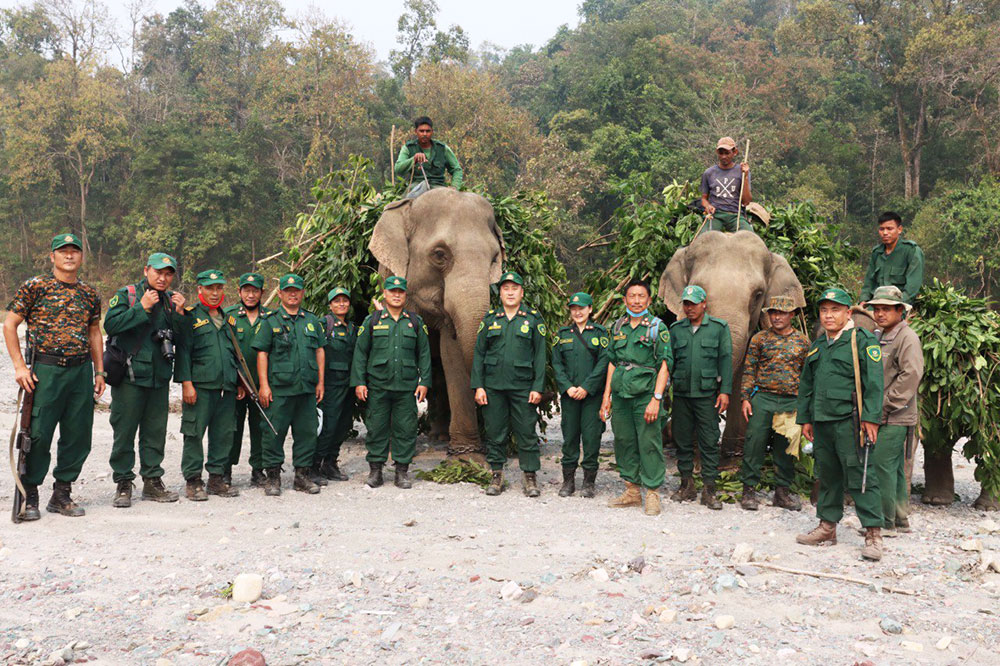Lhakpa Quendren
Gelephu — Before human-induced changes quickly drove them to homelessness, the giants once freely roamed through the plains of Sarpang, known as hatisar, the Land of Elephants. The places that once provided sustenance and shelter have vanished, leaving behind a hub of elephant-human conflicts in the buzzing border town.
Tashi Wangdi’s tribute song “Save Our Giants” released on August 12, coinciding with the World Elephant Day is a desperate plea for survival of these beasts.
The song begins, thus: I, the elephant, the endangered one in this world, have foraged happily, joyfully, and contended from our ancestors’ time…
The composer, a senior forestry ranger in Gelephu, says that the song adds value to the identity of the elephants through powerful melodies, simple chords, and lyrics that have different themes in the midst of negative public sentiments against the tuskers.
Tashi Wangdi aims to advocate on the importance of elephants in the ecosystem.
He highlights their contribution to forest diversification, carbon storage—an important aspect of mitigating climate change—and maintaining balanced climatic conditions.
The song eulogises the contribution of elephants to the livelihood of various wildlife species and the role of elephant faeces in supporting a web of interactions within the ecosystems. The song, further emphasised how elephants’ habits of digging holes for water have become a vital water source for other animals.
“A significant threat such as decreased biodiversity, desertification, and increased flooding would arise without the elephants, suggesting that its presence is essential for the ecosystem survival,” says Tashi Wangdi.
However, with increased development, it is evident that human-elephant conflict (HEC) is on the rise, with basic competition for space. Last year alone, there were reportedly five cases of severe HECs in the south, some leading to casualties and death.
The national elephant survey of 2017 estimates 678 elephants in Bhutan. Elephants are listed under the Schedule I of Forest and Nature Conservation Act of Bhutan 1995 and are thereby accorded maximum legal protection.
“The elephant’s struggles intensify as it searches for food and water. It encounters various threats,” said Tashi Wangdi. “The elephant’s dejected state raises the question of where it can find safety and sustenance.”
The song concludes with a heartfelt plea from elephants, expressing their fear of extinction and an urgent call for conservation. It urges compassionate individuals to unite in restoring their habitats for sustenance.
I am disappearing from this world, kindly protect me. I…beg you to save me from extinction.


